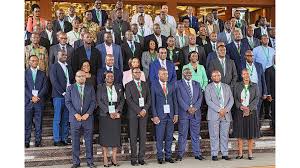Dar es Salaam, October 7, 2025 — The United Arab Emirates (UAE) has surpassed China to become Tanzania’s largest source of Foreign Direct Investment (FDI) in the third quarter of 2025, according to new data released by the Tanzania Investment Centre (TIC).
The TIC report shows that the UAE contributed the biggest share of new investment projects registered between July and September, reflecting growing trade and economic ties between the two countries.
The UAE’s investments were mainly in energy, logistics, real estate, and manufacturing, sectors that have been expanding under President Samia Suluhu Hassan’s economic reform agenda.
In comparison, China, which had dominated Tanzania’s investment landscape for over a decade, dropped to second place due to a slowdown in new infrastructure financing and a shift by Chinese firms toward smaller-scale joint ventures.
Speaking to Mwananchi, TIC Executive Director Gilead Teri said the surge in UAE investments demonstrates Tanzania’s growing appeal as a business hub in East Africa.
“Our recent engagements with investors from the Gulf region are bearing fruit. The UAE is now leading because of its interest in renewable energy, oil storage, and industrial production,” Mr. Teri said.
He added that ongoing reforms to simplify the business registration process and strengthen investment guarantees have boosted investor confidence.
Several UAE-based companies, including DP World, Masdar, and Abu Dhabi Ports, have expanded their portfolios in Tanzania. DP World recently began operating at Dar es Salaam Port, while Masdar is in discussions to develop solar and wind power projects in Dodoma and Singida regions.
The government’s efforts to promote public-private partnerships (PPPs) are also attracting foreign interest. Data from TIC shows that new UAE-funded projects are expected to create over 12,000 direct jobs across various sectors in the coming year.
Economists say the shift in FDI sources reflects broader global trends. The Gulf region, particularly the UAE and Saudi Arabia, is increasingly targeting Africa for investment diversification as oil-dependent economies seek long-term sustainability.
Dr. Donath Olomi, a business analyst, noted that Tanzania’s stable political climate and improved transport networks make it an attractive investment destination compared to its regional peers.
“The government’s focus on industrialization and trade facilitation aligns well with the UAE’s expansion strategy in Africa,” he said.
Meanwhile, China remains an important partner, especially in infrastructure, mining, and telecommunications, but experts believe future growth will come from diversified partnerships beyond traditional players.
The TIC expects total FDI inflows to Tanzania to rise by over 20 percent in 2025, supported by new trade deals and the revival of key projects in agriculture and manufacturing.
As Tanzania deepens its economic diplomacy with Gulf nations, the government says it aims to balance relationships with both Middle Eastern and Asian partners to sustain growth and technology transfer.



